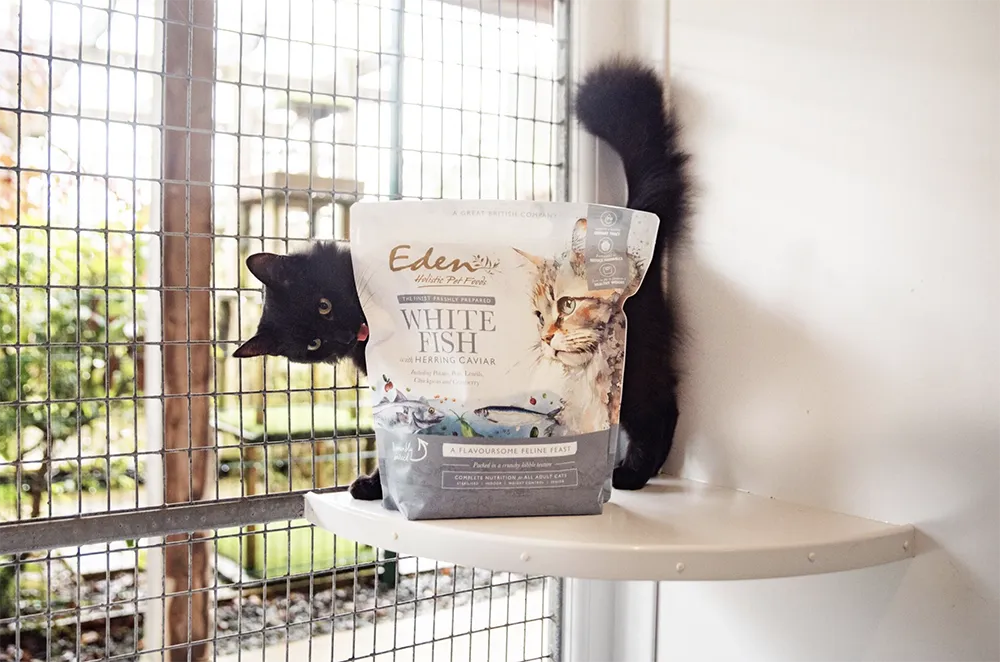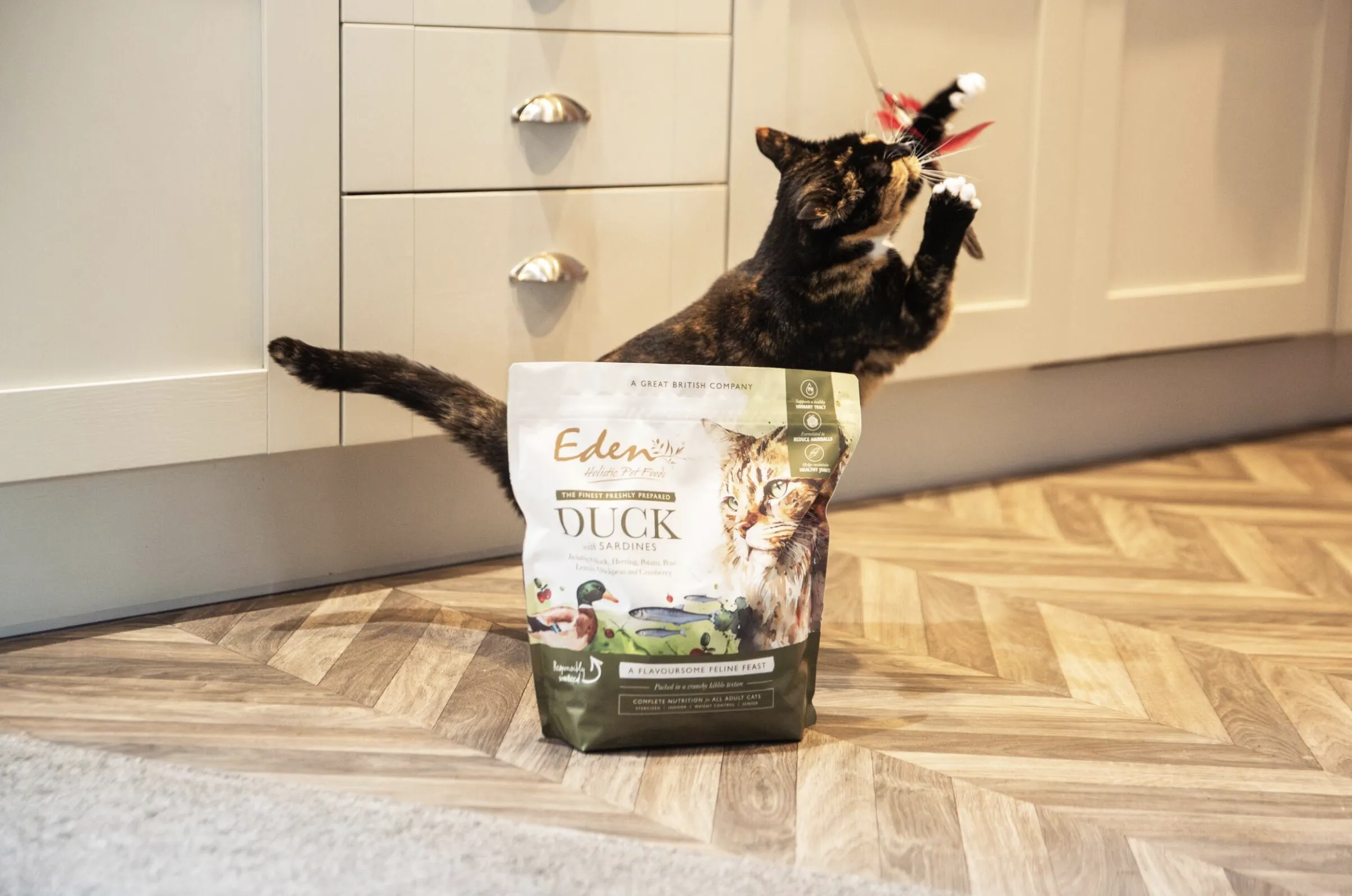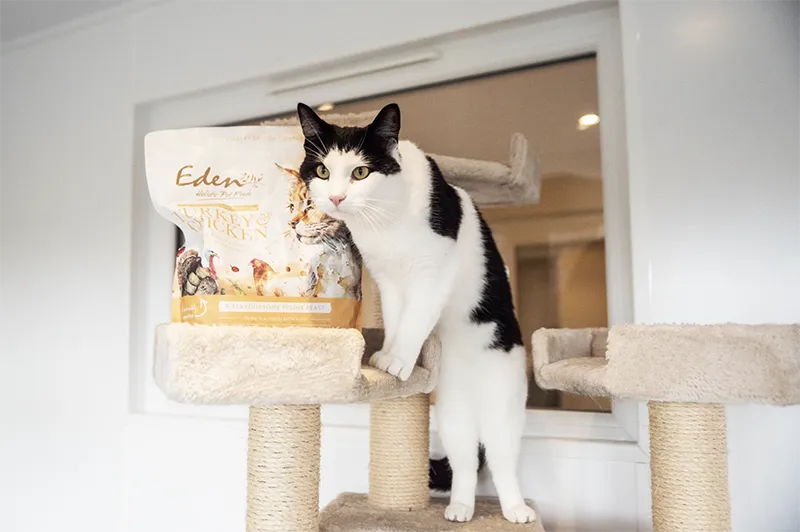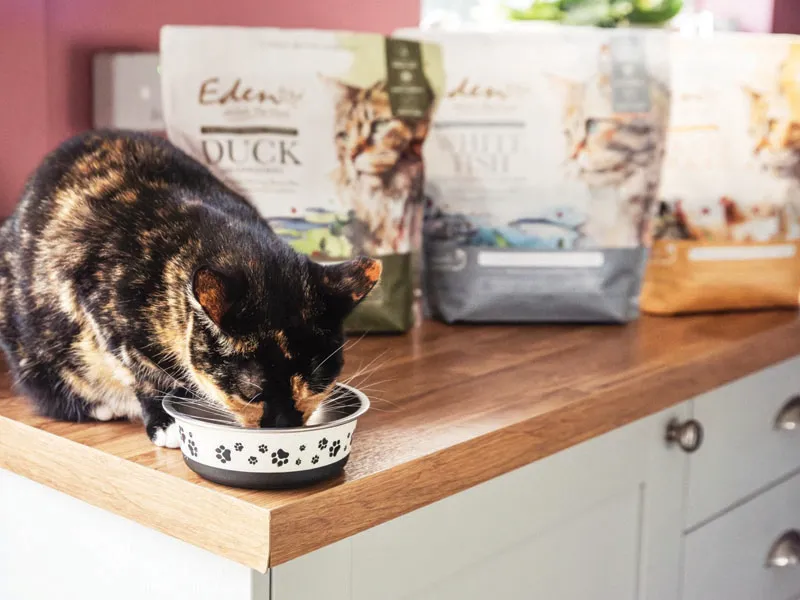Cats are unique, in both their personalities and individual characteristics. However, there are some common health concerns that your cat may face through their life, and one of the best ways to support this is through their diet. Read on for some common examples:
Urinary Tract Health
Urinary Tract Infections are very common in cats and are caused by a large variety of factors including obesity, E.coli from a dirty litterbox, and genetics. This can lead to the development of bladder stones if left untreated, resulting in long term health conditions. The primary methods of preventing bladder stone formation is by reducing the concentration of the urine through added hydration and ingredients within their food.
Certain components in a cat's diet, like methionine (an amino acid) and sodium bisulphate (acidity regulators), play a key role in adjusting urine pH. These ingredients create an acidic effect, countering the alkaline impact of sodium, potassium, calcium, and magnesium. This balance helps maintain the urinary tract's pH within the optimal range of 6.0-6.6. Keeping the urinary pH at this level may enhance life expectancy and prognosis after the diagnosis of urinary tract infections (UTIs).
Hairball Care
Hairballs are very common in cats, especially those with long fur. They build up in a cat’s body when their fur gets caught in their barbed tongues during grooming, and is then swallowed. Overtime the fur will build up within the body and create a matted ball that is then regurgitated. Some complications can arise from hairballs such as:
- Causing changes to bowel movements (Diarrhoea, constipation)
- Inducing vomiting and indigestion.
- Clogged intestines, which sometimes requires surgery to remove the hairball.
- Damaged stomach lining, which can result in ulcers or bleeding.
- Reduced appetite, which can lead to weight loss or malnourishment.
- Overgrooming or alopecia due to skin diseases.
Fibres such as cellulose or beet pulp are thought to bind to the strands of fur that the cat swallows during grooming. They aid in keeping the fur passing through the intestinal tract to be expelled in stools, rather than the fur accumulating within the stomach where it may be regurgitated.
Weight Management
Keeping cats indoors is becoming increasingly popular with many cat owners. They may be kept inside for many reasons for the cat’s safety, such as if their cat is elderly, to avoid fights with other cats, or if they live in a city and close to a busier road. Each cat will have different activity requirements and genetic makeup, and if these needs are not met, it can lead to weight gain and possibly diabetes. Cats that are neutered / spayed are also prone to weight gain as they have an increased appetite and a reduced activity level along with a varied hormone level.
It is important to exercise cats regularly through toys and enrichment. As well as this, ingredients such as L-Carnitine within a cat’s food will promote fat oxidation within the body and support a lean muscle mass, allowing cats to maintain a healthy weight whilst being indoors.

Joint Support
As cats come to the later stages of their lives, they require further support to aid in joint function. Health concerns such as arthritis, and obesity due to reduced activity levels can be common in geriatric cats. The main aid in supporting these issues is preventative care, as this can help to maintain strong joints and muscles, and to lengthen the time for symptoms to worsen.
A great way to strengthen the joints in elderly animals is through their diet. Ingredients such as Glucosamine, Methylsulfonylmethane (MSM) & Chondroitin Sulphate can support the joints by providing pain relief, having antioxidant and anti-inflammatory properties & preventing the breakdown of cartilage through water absorption.

Heart Health
The most common heart disease in cats is Hypertrophic cardiomyopathy (HCM). This involves the muscular walls of the heart becoming thicker, leaving a smaller space for the blood to pump around the heart. This leads to a decreased volume of blood being able to pump around the cat’s body and lead to subsequent health concerns.
Taurine is an essential amino acid which is found in animal proteins. A lack of taurine in their diet can lead to Dilated cardiomyopathy (DCM), another heart condition which has since reduced in popularity after cat owners are ensuring their pets are fed a complete diet. Cats cannot produce Taurine organically, and so they must consume it in their food.
We have the answer to help support your cat’s health with these common health problems. Our Feline Feast range has been specifically formulated with your cat’s health in mind. Our White Fish & Herring Caviar dry kibble contains L-Carnitine alongside a lower calorie and fat content to support fat oxidation and maintain a healthy weight. As well as this, our Duck & Sardine dry cat kibble contains joint supporting ingredients along with a reduced calorie and fat content to promote lean muscle mass.
Finally, Our Turkey & Chicken Feline Feast kibble is packed with added Taurine to keep your cat’s body regulated and promote healthy heart development in kittens. All three of these recipes are formulated with beet pulp and cellulose fibres to reduce the risk of hairballs as well as Methionine and alkaline regulators to support Urinary Tract Health.

